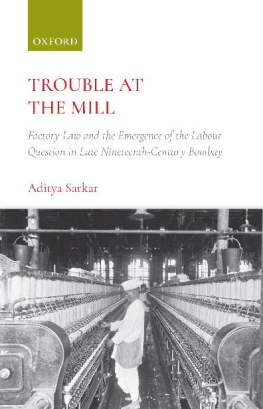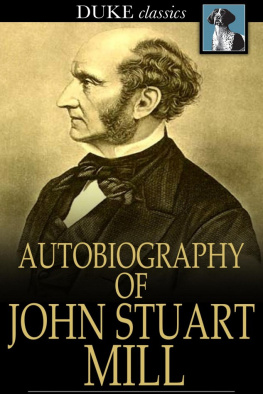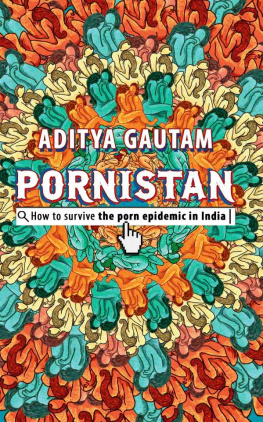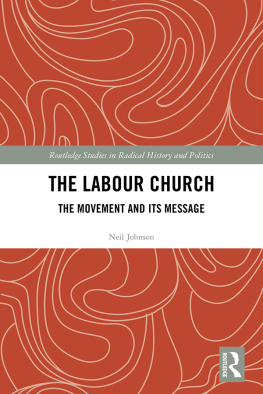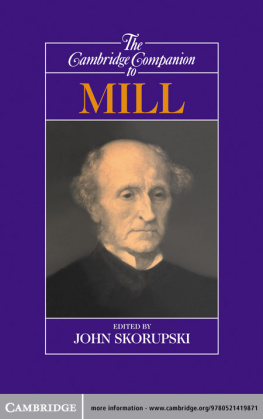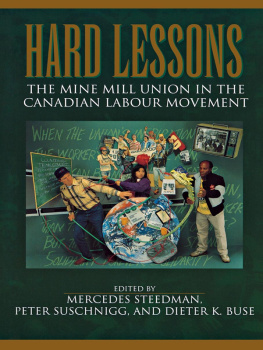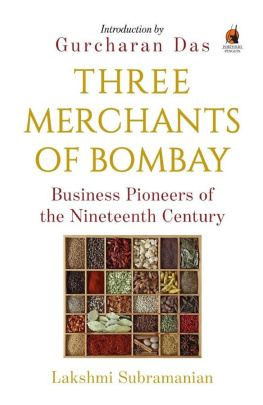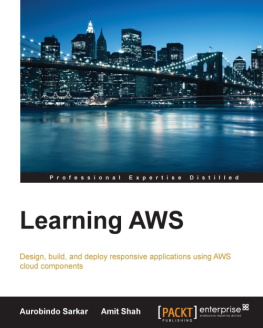Trouble at the Mill
Trouble at the Mill
Factory Law and the Emergence of the Labour Question in Late Nineteenth-Century Bombay
Aditya Sarkar
Oxford University Press is a department of the University of Oxford.
It furthers the Universitys objective of excellence in research, scholarship,
and education by publishing worldwide. Oxford is a registered trademark of
Oxford University Press in the UK and in certain other countries.
Published in India by
Oxford University Press
2/11 Ground Floor, Ansari Road, Daryaganj, New Delhi 110 002, India
Oxford University Press 2018
The moral rights of the author have been asserted.
First Edition published in 2018
All rights reserved. No part of this publication may be reproduced, stored in
a retrieval system, or transmitted, in any form or by any means, without the
prior permission in writing of Oxford University Press, or as expressly permitted
by law, by licence, or under terms agreed with the appropriate reprographics
rights organization. Enquiries concerning reproduction outside the scope of the
above should be sent to the Rights Department, Oxford University Press, at the
address above.
You must not circulate this work in any other form
and you must impose this same condition on any acquirer.
ISBN-13 (print edition): 978-0-19-947442-4
ISBN-10 (print edition): 0-19-947442-7
ISBN-13 (eBook): 978-0-19-909329-8
ISBN-10 (eBook): 0-19-909329-6
Typeset in Dante MT Std 10.5/13
by Tranistics Data Technologies, Kolkata 700 091
Printed in India by Replika Press Pvt. Ltd
For my parents
Tanika Sarkar and Sumit Sarkar
Contents
Many institutions have enabled the work that has gone into the making of this book. The idea behind it was initially formed during my early years of post-graduate training at Jawaharlal Nehru University in New Delhi, India. A scholarship from the Felix Trust enabled my PhD training at the School of Oriental and African Studies (SOAS) in London, UK. A post-doctoral fellowship at the Centre for Modern Indian Studies in University of Goettingen, Germany, and subsequent employment at the University of Warwick, UK, have made continuing research possible. I am grateful to the staff and management of various libraries and research institutions for their support: the Maharashtra State Archives, Mumbai, India; the Oriental and India Office Collection at the British Library, London; the Indian Merchants Chamber Library, Mumbai; the National Archives of India, New Delhi; the Nehru Memorial Museum and Library, New Delhi; the Central Secretariat Library, New Delhi; the School of Oriental and African Studies Library, London; the Centre for Education and Documentation, Mumbai; the Centre for South Asian Studies, University of Cambridge, UK; the Modern Records Centre at the University of Warwick; the V.V. Giri National Labour Institute, Noida, India; the Gokhale Institute of Politics and Economics, Pune, India; and the National Library in Kolkata, India.
I am very grateful to Oxford University Press, India, for its support, which has been instrumental to the publication of this book. I am grateful to the anonymous reviewers of this book as well as of other publications which prepared the base for it, and I also thank my PhD examiners, Claude Markovits and Jon Wilson, for their detailed comments, which helped immensely in turning a dissertation into a book.
Many mentors and teachers have made this book possible. In particular, I owe a deep debt to Peter Robb, who supervised my PhD research at SOAS. His lucid interventions helped to discipline and organize an often flailing set of arguments into some sort of cohesion, and his insights into labour history and state policy deeply influenced the ways in which I conceived of the overall structure of the argument. This book would not have been possible but for his kindness, encouragement, and truly enviable patience. I am grateful to Neeladri Bhattacharya, whose supervision of my pre-doctoral research at the Centre for Historical Studies in Jawaharlal Nehru University was crucial in defining my interests. I am also indebted to Ravi Ahuja, for formulating historical and theoretical arguments about labour history which have deeply influenced my own thinking. I am still profoundly marked by the teaching I was lucky enough to encounter during my undergraduate and graduate studies, particularly in courses taught by Upinder Singh, Neeladri Bhattacharya, Madhavan Palat, Radhika Singha, Sabyasachi Bhattacharya, and Pratap Bhanu Mehta. I owe a great deal to the two institutions which formed me into a historian, University of Delhi and Jawaharlal Nehru Universityboth, sadly, now suffering the crippling pressures exerted by the political forces dominant in present-day India, as free intellectual enquiry continues to be encircled, threatened, and punished.
The work and insights of Prabhu Mohapatra and Chitra Joshi, as well as their encouragement, have meant a great deal to me. I have benefited immensely from my exchanges with them, and with many other scholars who have played a role in setting out and debating a future for Indian labour history, particularly Dilip Simeon, Jairus Banaji, Samita Sen, Gopalan Balachandran, Rana Behal, Naveen Chander, Shahana Bhattacharya, Nitin Sinha, and Nitin Varma. The Association of Indian Labour Historians, for many years, has played an indispensable role in stimulating exchanges between scholars researching histories of work, and, like many others working in the field of labour history, I have benefited immensely from the conversations it has enabled.
Inevitably, it is impossible to list all the people who have, at one point or another, shaped this book, and of the intellectual exchanges, conversations, and friendships that have been important to me over the years. An incomplete list of thanks for friendships, interlocutions, critical support, or enabling insights would include: John Game, Franziska Roy, Pradip Kumar Datta, Shipra Nigam, Jayeeta Sharma, Camille Buat, Nitin Sinha, Nitin Varma, Sunalini Kumar, Priya Ranjan, Ben Smith, Erica Wald, Prabhu Mohapatra, Vanessa Caru, Chitra Joshi, Rana Behal, Samita Sen, Dilip Simeon, Jonathan Saha, Uditi Sen, Lara Choksey, Aditya Pant, Angad Singh Chowdhry, Partha Prathim Shil, Rachna Singh, Mahesh Gopalan, Mekhola Gomes, Mandakini Devasher Surie, Samiksha Sehrawat, Shahana Bhattacharya, Rahul Govind, Layli Uddin, Antara Datta, Mukul Mangalik, Harry, Achin Vanaik, Sanjukta Sunderason, Sarah Hodges, Mrinmoyee Majumdar, Sebastian Schwecke, Sarah Hodges, Parismita Singh, Claire Midgley, David Arnold, Stefan Tetzlaff, Manu Sehgal, David Mayer, Gargi Chakrabarty, Meghna Deka, Robert Rehman Raman, Vidhya Raveendranathan, Medha Saxena, Ravi Kant, Shankar Ramaswami, Marcel van der Linden, Priyamvada Gopal, Razak Khan, Aparna Kapadia, Enrique Martino, Ali Raza, Sumeet Mhaskar, Michaela Dimmers, Charles Walton, Sikandar Kumar, Gopalan Balachandran, Anupama Rao, Srirupa Roy, Lalit Vachani, Sourit Bhattacharya, Laura Schwartz, Anna Hajkova, Bodhisattva Kar, Benjamin Zachariah, Meera Viswanathan, Parismita Singh, Jahnavi Phalkey, Ravi Vasudevan, Indivar Kamtekar, Beli, Joerg, Maja, Carolyn Steedman, Maxine Berg, Sulekha Sanyal, David Hardiman, Bikram Ghosh, Pronoti Datta, Deepak Rao, Joya Chatterji, Carrie Heitmeyer, Henrique Espada, Abhinandita Mathur, Tara Puri, Onni Gust, Benoit Dillet, John Thomas, Srirupa Roy, Lalit Vachani, Atishi Marlena, Ankita Pandey, Somak Biswas, Claude Markovits, Parita Mukta, Jon Wilson, and Ajay Gandhi.

